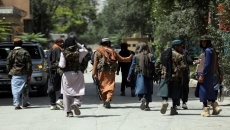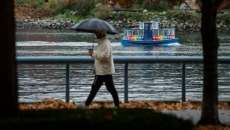After a two-year hiatus due to the Covid-19 pandemic, the vibrant and colorful Vaisakhi parades are back in Surrey and Vancouver, much to the delight of the local community. Vaisakhi is a significant festival in Sikhism and Punjab, commemorating the harvest season and the birth of the Khalsa, the community of baptized Sikhs. The festival has gained prominence in Canada, especially in British Columbia, home to the largest Sikh population outside of India.

Of course, the Nagar Kirtan, often referred to as the Vaisakhi parade, is an important religious procession in the Sikh faith, in which the community comes together to celebrate a special occasion or event. The term "Nagar" means "town or city" in Punjabi, and "Kirtan" means "singing of hymns" or "devotional music". Nagar Kirtan, therefore, refers to a town or city-wide procession in which devotees sing hymns and chants while walking together in a parade-like manner, led by Guru Granth Sahib Ji.
The Vaisakhi parade in Surrey is known to be the largest of its kind outside India, drawing over 500,000 people in previous years. The parade features colorful floats, music, dance, and food, showcasing the rich and diverse Sikh and Punjabi culture. The parade route starts at the Gurdwara Sahib Dasmesh Darbar, one of the largest Sikh temples in North America, and winds through the streets of Surrey, attracting participants and spectators from all over the Lower Mainland and beyond.
The Vaisakhi parade in Vancouver is also no less significant in its cultural and community impact. The parade starts at the Ross Street Sikh Temple and proceeds along Main Street, drawing thousands of people from diverse backgrounds. Both parades feature an impressive mix of traditional and modern elements, such as Gatka, Bhangra, and spirited singing. It is heartening to see each year how the parade culminates in a free community meal, or langar, where people of all faiths and backgrounds can sit together and share food as equals.
The return of the Vaisakhi parades in Surrey and Vancouver is not just a symbolic and cultural event but also a sign of economic and social recovery. The pandemic has hit our communities hard, both in terms of health and livelihoods. The closure of businesses, schools, and places of worship has disrupted the social fabric of the communities. The Vaisakhi parades offer a chance for people to come together and celebrate their resilience and optimism, to connect with old friends and make new ones, and to share their joy and faith with the wider society.

The Vaisakhi parades are also an opportunity for local minorities to showcase their contributions and diversity to Canadian society. Canada has welcomed immigrants from India and other South Asian countries for decades. In fact, Canada has welcomed a historic and record-breaking number of newcomers in 2022, hitting its target of 431,645 new permanent residents. Immigrant communities have integrated and contributed in various fields, such as business, education, arts, and sports. The Vaisakhi parades are a window into the vibrant and dynamic culture of the communities, and a chance to dispel stereotypes and misconceptions.

The return of the Vaisakhi parades in Surrey and Vancouver is a much-anticipated event for communities all over Canada, and a symbol of hope and resilience for all. The parades not only celebrate the rich cultural heritage and traditions of the Sikh and Punjabi communities, but also serve as a platform for social and political issues, and for the voices of the marginalized to be heard. As the communities continue to recover from the pandemic and navigate the post-pandemic world, the Vaisakhi parades are a reminder of the enduring spirit of cultural and community celebration, and of the values of unity, diversity, and resilience that define Canadian society.






